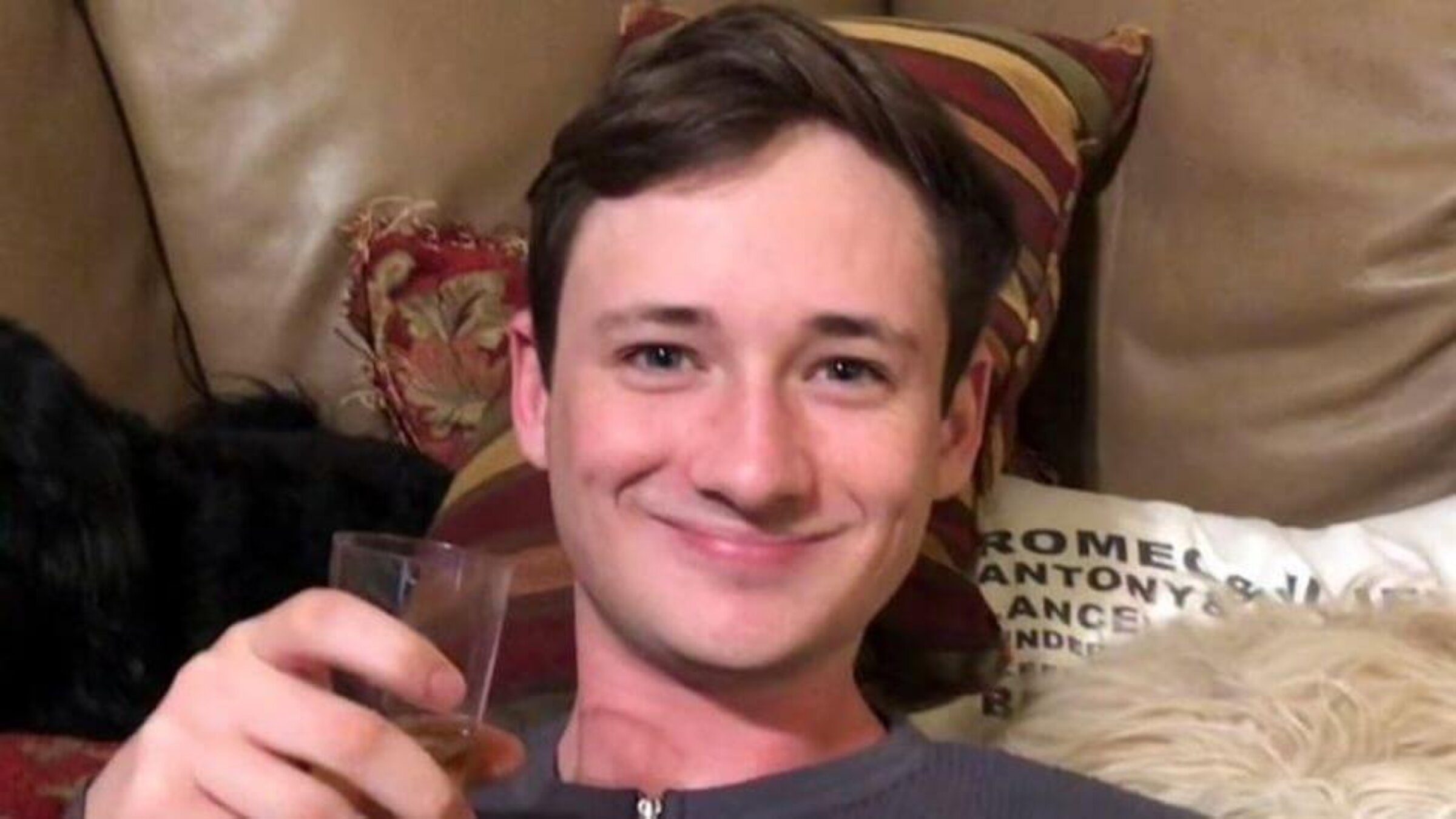Defense admits Blaze Bernstein’s ‘unlawful killing’ but denies premeditation on first day of long-awaited trial
Samuel Woodward, who allegedly murdered Bernstein in 2018, will testify in his own defense

19-year-old Blaze Bernstein, a student at the University of Pennsylvania, was murdered in January 2018. Courtesy of the Bernstein family
Samuel Woodward, the man accused of murdering gay Jewish teenager Blaze Bernstein in 2018, will testify in his own defense, his attorney, Ken Morrison, said Tuesday in opening arguments. Morrison also said that Woodward had killed Bernstein, but that the killing was not premeditated.
Members of a neo-Nazi group will likely also testify for both the prosecution and defense.
Opening arguments before a packed Orange County courtroom Tuesday underscored Woodward’s affiliation with Atomwaffen Division, an American extremist group in which prosecutors said he was deeply involved — and which his defense argued preyed on “profoundly vulnerable” loners like him.
Bernstein, who in January 2018 was a 19-year-old sophomore at the University of Pennsylvania visiting his California home for winter break, met up with Woodward, whom he knew from high school, late one night, prosecutors said. The encounter appeared to have a sexual pretext: Woodward, then 20 and now 26, wrote in a message to Bernstein that he was straight but “willing to make an exception.”
Woodward had in several instances matched with men on Tinder only to rebuff them, lead prosecutor Jennifer Walker said, adding that one of them will testify.
Walker framed Bernstein’s killing as a hate crime planned and executed by a violent, radicalized homophobe whose reactionary parents fueled his hatred. Morrison, in Woodward’s defense, depicted the crime as a homicidal outburst by an autistic — and possibly gay — teenager from a repressive household who joined a hate group in search of an affirmation of his masculinity, which his father and brother often questioned.
And he revealed that what he called Woodward’s “obsession” with gay men went beyond catfishing on dating apps. He had during high school also sent full-body nude images of himself to another male classmate — whom Morrison said will testify. Woodward also visited gay pornography sites, Morrison said.
The revelation shortly after Woodward’s arrest of his involvement with Atomwaffen — which prosecutors said Tuesday included writing a test for new members — heightened national concerns around white nationalist extremist violence. But while Walker characterized Atomwaffen as a motivating force for Woodward’s hatred, Morrison depicted the hate group as a foundering social club that had no genuine violent ambitions.
The trial’s long-awaited first day also suggested that Walker, who opened her arguments by displaying an online dictionary’s definition of hate, intends to focus on Bernstein’s sexuality, rather than his Jewish identity, as the reason that Woodward allegedly targeted him.
“The defendant killed Blaze Bernstein because he was gay,” she said.
Walker said Woodward “developed his long standing beliefs against Jewish people and gay people by joining Vanguard America,” a hate group associated with the murder of Heather Heyer at the Unite the Right rally in 2017. Then, Woodward turned Atomwaffen — because, Walker alleged, he didn’t find Vanguard America violent enough.
And after Bernstein shared his address with Woodward on Jan. 2, 2018, Woodward drove over with the alleged murder weapon — a folding knife inscribed with his father’s name — as well as a shovel-like device, a sleeping bag and an Atomwaffen mask.
Blood matching Bernstein’s DNA appeared on the knife, sleeping bag, and in between the links of Woodward’s watch, Walker said.
Morrison, the third public defender to represent Woodward since his arrest eight days after Bernstein’s death, said his client was guilty of homicide in Bernstein’s death, calling it an “unlawful killing of another unarmed, young person who did not deserve to die.”
But Morrison said the killing was not a planned hate crime — and that Bernstein, whom Walker said had suffered 28 stab wounds, had provoked the attack.
“Blaze was not killed because of who he was, but because of what he did to Sam Woodward after they met up,” Morrison said. “And because of what Sam learned that night about what Blaze had been doing to Sam over the previous six months.”
Morrison was describing the first Tinder conversation between the two, which took place in June 2017, when the judge halted the day’s proceedings.
Walker said an Atomwaffen member who knew Woodward would testify for the prosecution. Morrison told the Forward he had three Atomwaffen members on his witness list, but said he could not confirm that any would testify.
Morrison, who took over Woodward’s case about 18 months ago, was trying to demonstrate that Woodward’s homophobic home environment led to deep anxiety about his sexual orientation — an anxiety that Morrison indicated came into play when he killed Bernstein.
Morrison described the Woodward home as one split into warring camps — with Woodward and his mother, Michelle, on one side, and Woodward’s father, Blake, and older brother, Clayton, on the other. Blake Woodward considered homosexuality a sin, Morrison said, and Clayton often called his younger brother a “f—t.”
In contrast to Woodward’s father, Michelle “always has been a loving parent in his upbringing,” Morrison said. “That’s not to say she made all the right decisions for him. That might be something for you all to judge.”














